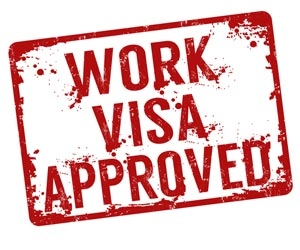Visas and Work Permits
Each of the four countries differs in the way that it treats foreigners with respect to issuing work and residency permits.

It is important to note several common points:
- Citizens of the United States do not need visas to enter the Czech Republic, Slovakia, Poland, or Hungary if staying for 90 days or less. This is a new law according to Schengen Zone regulations, which these four countries now abide by. Canadian citizens, on the other hand, might require entry visas. Since the laws change frequently, consult the nearest consulate or embassy. (Visas are made available through the nearest embassy or consulate in Canada, or may be granted either at a Czech, Slovak, Polish, or Hungarian consulate in another nearby European country with a Canadian consulate, or sometimes at the border prior to travel into one of the four countries. However, do not rely on visas being available at all border crossings. For example, in the Czech Republic no visas are available on trains or buses. You can get a visa at the airport, or at larger border crossings if you are traveling by car.)
- The laws that regulate a foreigner’s ability to legally reside and work in these countries change constantly. This is due to (among other things) instability in the labor markets and inconsistencies in the legislative machinery of the governments of Eastern Europe.
- Bureaucratic red tape is rampant, so the work permit application process often takes several months. Get your paperwork started and organized as soon as you know that you will need a work visa.
- Work permits are issued for individual jobs via a specific employer. You cannot randomly transfer work permits if you decide to take a job with another school or company.
Though it is recommended that you abide by the laws of the land, many American expats have in the past chose to work without a permit and stay for months or even years without applying for residency status.
Be advised, however, that this is risky business, and especially now that these nations have entered into the Schengen Zone. Despite rumors of people working in the “black,” within the past two years the countries of Eastern Europe have stepped up their efforts to seek out individuals or companies employing illegal workers. Large financial fines or deportation could result if you’re caught; therefore, correct working papers are sought increasingly by both officials and companies looking to hire new employees.
Because of the various employment taxes and social security benefits tied to work permits, it is usually the employer’s responsibility to see that their workers apply for the proper documentation. They may be subject to fines if they are caught hiring and employing foreigners under the table. Moreover, there are certain advantages to having the proper papers: you frequently are covered by the government health care plan and can get certain discounts (on public transportation and bus and train fares, for example) if you possess a residency permit (similar to a green card in the United States).
To read details about visas and permits as they apply to specific countries, click on one of the links below:

